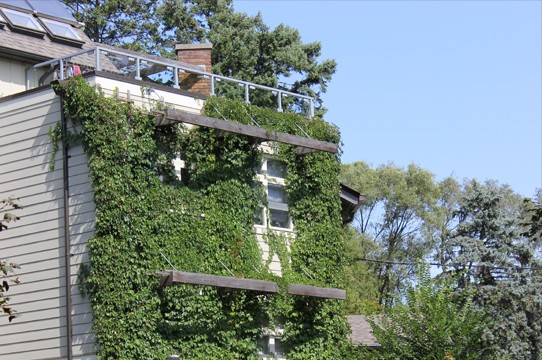The House That Co-operation Built
Tuesday, September 11, 2012
I want to tell you about a house.
A house that is much more than meets the eye.
Situated across the street from campus, here at the University of Guelph, 7 College is a co-operative – or co-op – that was built by students, for students.
Built by the Guelph Campus Co-op, with support from the Central Students Association, 7 College employs state-of-the-art environmental technologies and is fully accessible to students with disabilities.
It’s also a good deal because affordability is part of the Co-op’s mandate.
It started as a conventional 1930’s home, and in 2007 was gutted and expanded.
Now, students at 7 College have their hot water supplied by solar power.
The house faces due south, maximizing passive solar heating. It has in-floor radiant heat, on-demand hot water, positive R value fibreglas windows, energy-efficient lighting and appliances, and a green roof.
When students at 7 College flush, they do so using their recycled greywater from showers and laundry. When they do laundry, they do so with soft, clean rainwater collected in storage tanks.
Last year, 7 College didn’t need city water to flush its toilets.
All the corridors and doorways were renovated to allow for wheelchair accessibility, alarm systems account for hearing and visual impairment and an elevator was installed to allow students access to all floors.
7 College has won awards. It serves as a research and teaching tool for engineering grad students, and is an excellent example of public/private collaboration. The City of Guelph regularly monitors the greywater and rainwater operations to help it prepare for a city wide roll out of similar systems. A private water engineering firm is also using the facilities as a pilot project.
Here’s something else: 7 College would not have been built by the private sector.
7 College is a success story unique to co-op’s.
Why? Because co-op’s have a different value system than conventional business.
Where conventional business structures reward the few, co-op’s reward the many. The competitive model is motivated by self-interest, which means you have winners and losers. The Co-operative model is motivated by mutual benefit, which means it’s win-win.
Sure, the competitive model means those who win, win big. If someone has the capital, and wants to take the big risks, they may get the big reward.
But the co-op model is not about maximizing individual wealth, it’s about fulfilling collective needs. In a co-op, one person gets one share and all benefit and risk equally.
To understand how this plays out at the local level, we need to go back almost a hundred years. In 1913, seven students, from rural agricultural backgrounds came to the UofG, then known as the Ontario Agriculture College. They came from communities where co-op values were the norm. Before national health care or education, and before wheat boards, farming communities had to rely on each other. They had to co-operate, and together they made sure that their cattle and grain was sold and that their kids got to school. So when these young guys showed up in Guelph, they knew that the college administration was not necessarily going to look out for all their interests. So they organized themselves under what they must have thought was the most natural principle in the world: co-operation.
The co-op they established allowed them to buy textbooks, build an ice skating rink on Johnson green, help build War Memorial Hall and dug out a coffeeshop in the Massey building. Everyone who became a member benefited equally. The members set priorities and focused on supporting students in various areas significant to their lives.
A lot has changed since those days, but not the core principles.
7 College was built because it was the vision of the membership to supply affordable, environmentally-conscious housing. It is based on sound economic principles that take a bigger worldview into account.
That’s a longview often missing in a for-profit perspective.
Co-op’s are successfully run all over the world and yet, surprisingly, they’re least known here in North America. But they’re everywhere, and if you start looking around you’ll begin to notice. A question also worth asking is: why isn’t there more serious study of the co-operative model in business school?
The world faces many serious challenges, we all know that. Most of us are also aware that a healthy economy is inextricably tied to getting this planet healthy again. Co-op’s are part of the solution.
The world needs more mutual benefit. It needs more democracy. It needs more citizens to feel like they can affect change.
In short, the world needs more co-operation.
Tom Klein Beernink
Manager of Housing
